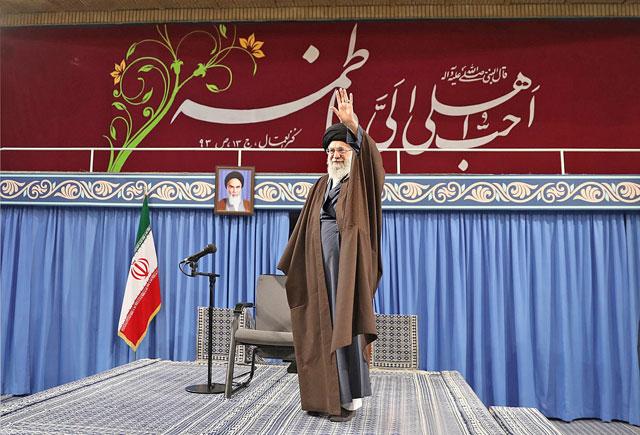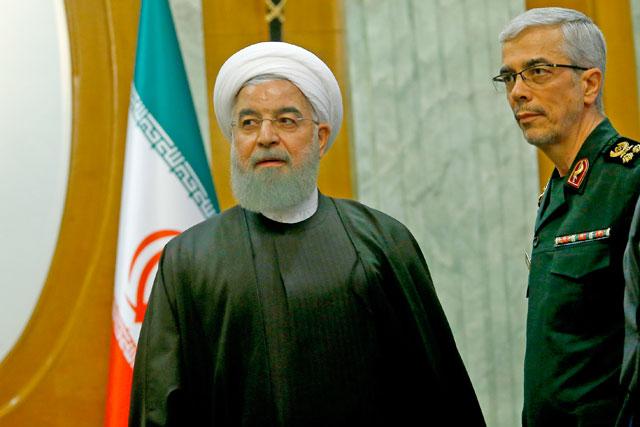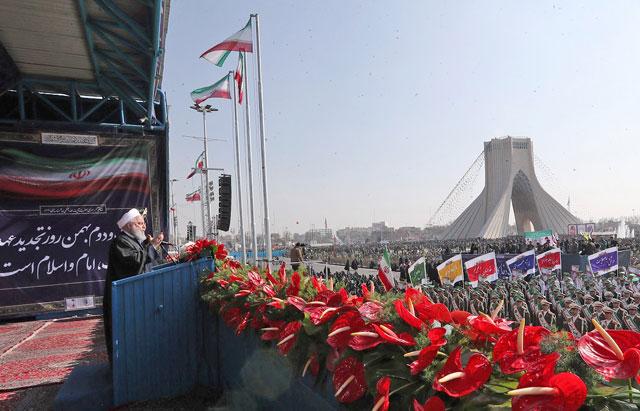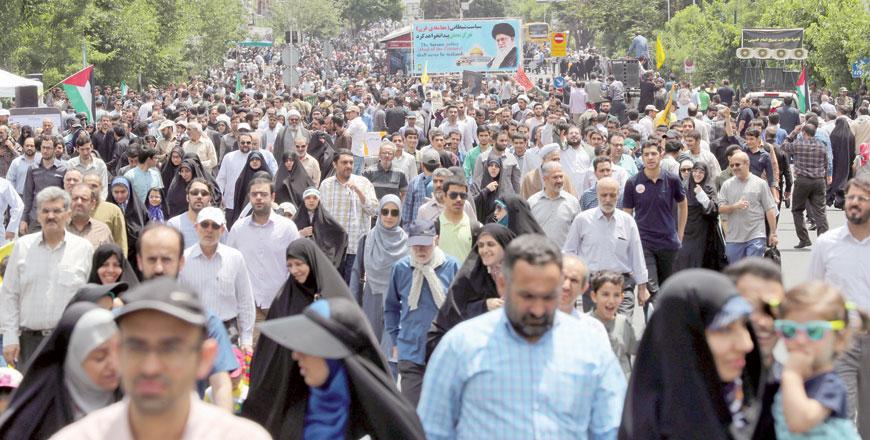You are here
‘Iran’s Khamenei will not negotiate with West over regional presence’
By Reuters - Mar 08,2018 - Last updated at Mar 08,2018

Iran's Supreme Leader Ayatollah Ali Khamenei gestures during a meeting with religious poets in Tehran, Iran, on Thursday (Reuters photo)
LONDON — Iran will not negotiate with the West over its presence in the Middle East, Supreme Leader Ayatollah Ali Khamenei said on Thursday, a few days after France's visiting foreign minister sought to raise Tehran's role in regional conflicts.
Jean-Yves Le Drian flew to Tehran on Monday with a brief to reaffirm European support for a 2015 nuclear deal that opened up Iran's economy while echoing US concern about Tehran's missile programme and its influence in the region.
"European countries come [to Tehran] and say we want to negotiate with Iran over its presence in the region. It is none of your business. It is our region. Why are you here?" Khamenei was quoted as saying by his official website.
Khamenei, a Shiite cleric who is Iran's ultimate authority on all major matters of state, said the Islamic Republic would only negotiate on that issue with other states in the region.
Iran's Revolutionary Guards have sent weapons and thousands of soldiers to Syria to prop up President Bashar Assad in the country's seven-year-long civil war. Israel has accused Tehran of seeking a permanent military presence in Syria.
Khamenei described the presence of US military forces in various regions of the world as "malicious and seditious" and said Iran would not ask for permission from Washington to be active in the Middle East.
"We will negotiate with America when we want to be present in America," he said.
US President Donald Trump has threatened to pull Washington out of Iran's nuclear agreement with world powers, forged before he took office, unless three European signatories help "fix" the accord by forcing Tehran to limit its sway in the Middle East and rein in its ballistic missile programme.
French President Emmanuel Macron has criticised the programme and raised the possibility of new sanctions.
Iran has one of the Middle East's largest missile programmes and some of its precision-guided missiles have the range to strike Israel.
Israeli Prime Minister Benjamin Netanyahu discussed Tehran's military activities in the region with Trump in Washington this week.
Iran has also been aiding the Shiite-led government of Iraq in its fight against the Sunni militant Daesh group.
Iranian Defence Minister Amir Hatami was quoted as saying by Tasnim news agency Tehran was also ready to offer "military advisory and security" help to Afghanistan in that state's fight against terrorism — an allusion to the Daesh fighters and also Sunni Taliban insurgents.
President Hassan Rouhani said on Wednesday that Iran's military might posed no threat to any country in the region.
"Our weapons are meant to promote peace, strengthen stability and security and to prevent others from invading our country. No one should be concerned about Iran's weapons and missiles," Rouhani was quoted as saying by the state media.
Related Articles
LONDON — The deputy head of Iran's Revolutionary Guards warned Europe that if it threatens Tehran, the guards will increase the range of mis
ANKARA — Hundreds of thousands of Iranians rallied on Sunday to mark the anniversary of Iran's 1979 Islamic revolution, denouncing the Unite
DUBAI — President Hassan Rouhani on Saturday suggested Iran may be willing to hold talks if the United States showed it respect, but said Te



















